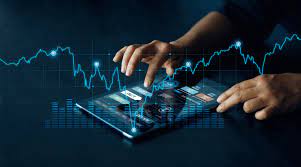forex market has evolved with the advent of social media, providing a new dimension to market influence and decision-making. Social media platforms have become powerful tools that can drive market sentiment, amplify trends, and impact trading decisions, creating a dynamic relationship between online trading and the digital social sphere.
Social Media as a Market Catalyst
Social media platforms, such as Twitter, Reddit, and StockTwits, have become hubs for discussions on financial markets. Retail traders, professional investors, and market enthusiasts converge on these platforms to share insights, analyses, and trading ideas.
Key Aspects of Social Media’s Influence on Online Trading:
Market Information: Social media provides a real-time stream of information, including news, opinions, and trends, allowing traders to stay updated on market dynamics and respond quickly to changing conditions.
Sentiment Analysis: Sentiment analysis tools can gauge market sentiment by monitoring social media activity. Positive or negative sentiment can influence trading strategies and asset prices.
Trading Communities: Social media fosters the creation of trading communities, where like-minded traders share their knowledge and experiences, leading to collective insights and strategies.
Influence on Asset Prices: Trending topics on social media can significantly impact asset prices. For instance, coordinated efforts on platforms like Reddit can drive the prices of specific stocks or cryptocurrencies.
Transparency: Social media brings transparency to the market by exposing irregularities and market manipulation, making it harder for bad actors to hide.
Challenges and Considerations
While social media can be a valuable tool, it also presents challenges:
Volatility: Market reactions to social media trends can be highly volatile, and traders should be cautious when interpreting signals from these platforms.
Misinformation: Misleading or false information can spread rapidly on social media, potentially leading to poor trading decisions.
Regulatory Concerns: Regulatory bodies are beginning to address concerns related to market manipulation and insider trading facilitated by social media. Traders should be aware of these evolving regulations.
The Future of Social Media in Online Trading
The integration of social media and online trading is expected to continue growing. AI and machine learning tools will enhance sentiment analysis, and regulatory bodies will work to ensure market integrity.
In conclusion, social media’s influence on online trading is a double-edged sword. While it offers access to real-time information, a sense of community, and the ability to influence market sentiment, it also presents risks in the form of misinformation and excessive volatility. As the relationship between social media and online trading deepens, traders must navigate this landscape with caution, staying informed, and using critical thinking to make sound investment decisions.
